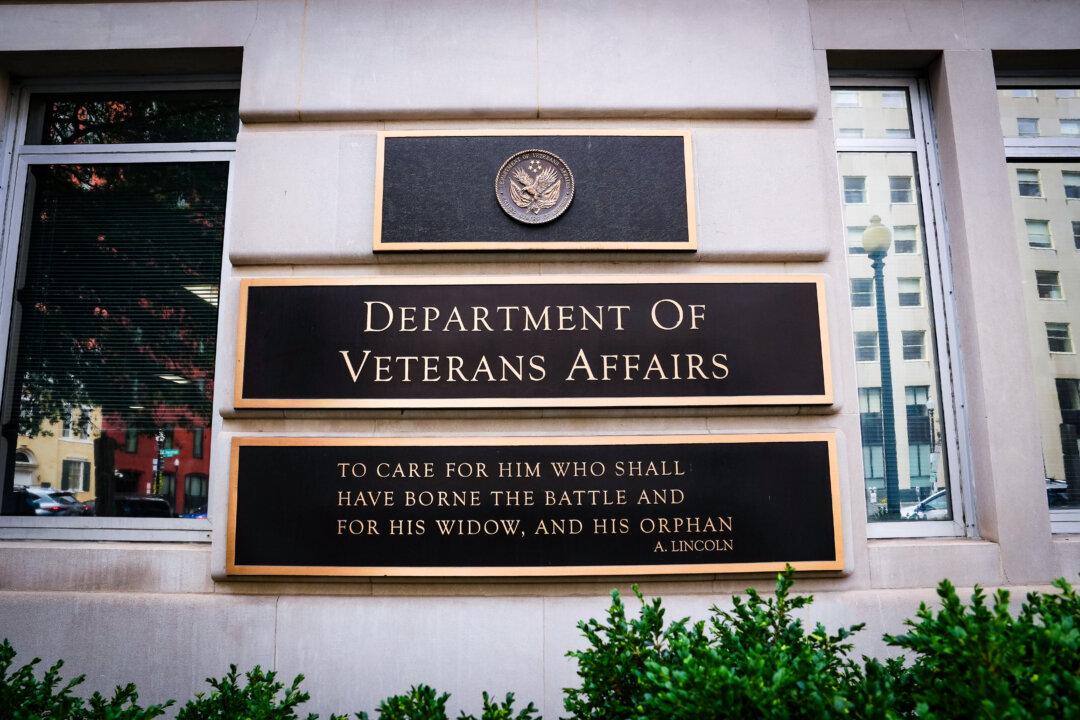A veteran who died under the care of the Veterans Affairs (VA) center in Wyoming had faced a delay in basic life support and a veteran who died in a suicide at a center in Arizona had received inadequate care, according to the agency’s watchdog.
2 Veterans Who Died at VA Medical Centers Lacked Proper Care, Watchdog Finds
The inspector general made recommendations to improve care, and the VA concurred with them.

U.S. Department of Veteran Affairs building in Washington, on July 6, 2023. Madalina Vasiliu/The Epoch Times




